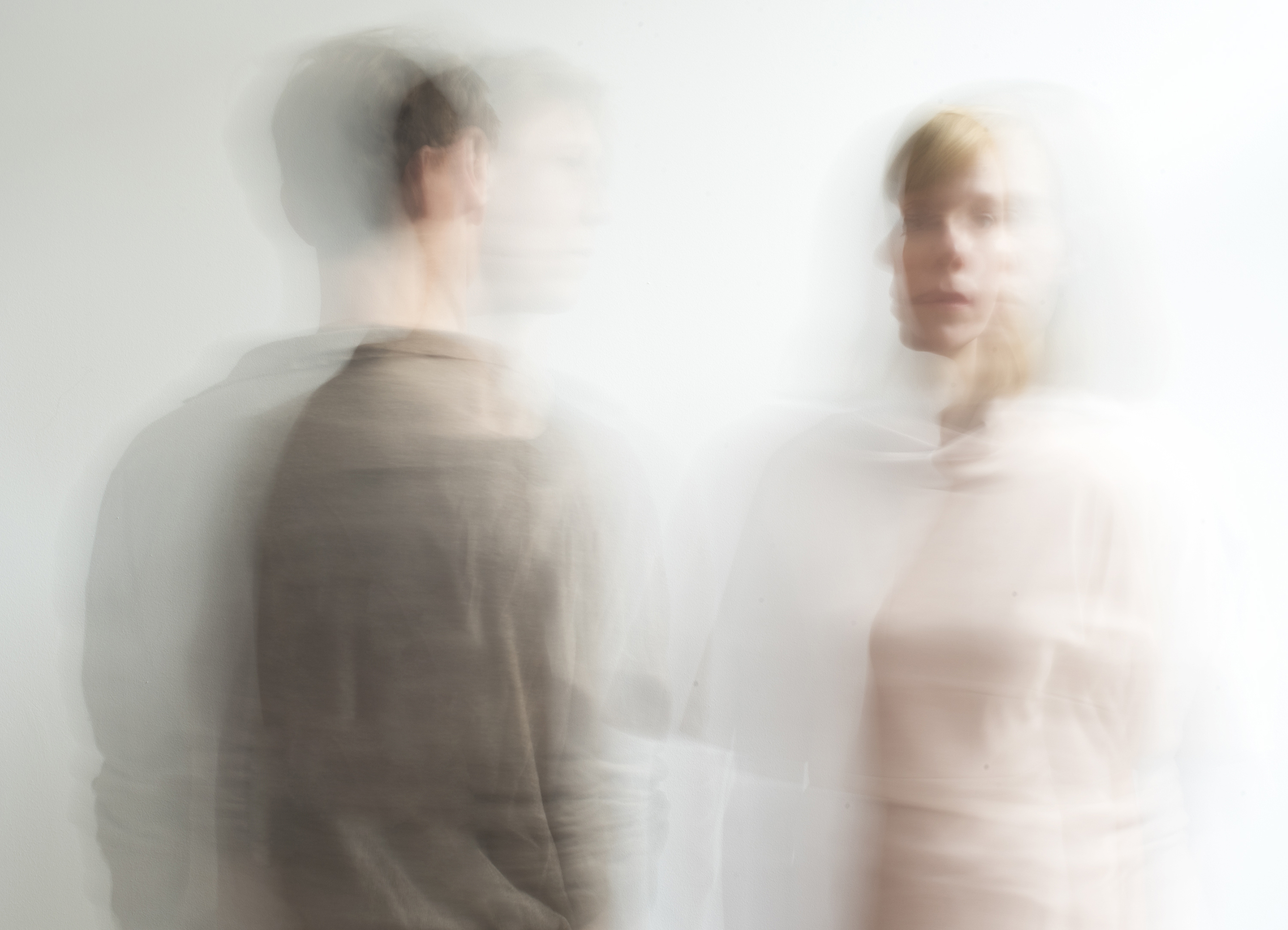
Watching “World Without Us” and “The Explanation” back to back at the Cultch, and in that order, was serendipitous. On the surface, no two plays could be further apart but in retrospect, it’s clear that they share the same core messages. They are both existential in nature and ponder the purpose of human life. “World Without Us” takes a macro sociological approach while “The Explanation” takes the micro and quotidian route. Both approach their subjects with novelty, economy and ingenuity. Their core philosophies complement each other beautifully and even answer questions that the other poses.
Karolien De Bleser immerses us into the dark, quite literally, in “World Without Us”. We see her briefly at the start and then she takes us by the hand and helps us imagine a world in which for some reason (not explained but maybe I just missed it), humans are gone. A plane flies in the sky until it runs out of fuel. Its black box functions for a finite amount of time until it gives way to wear as well. Meanwhile the Cultch, without humans, loses all sources of light one by one, the exit sign being the last to go. De Bleser deconstructs earth’s journey to its eventual destruction to minutest of details. She goes till she can’t split atoms anymore and leaves no stone unturned. By doing so she makes you wholeheartedly accept the picture she is painting. But to get to the complete resurrection of her idea, atoms up so to speak, De Bleser does demand the full attention of her audience. To stay with her requires commitment and patience. There was a flurry of exits in the beginning and towards the middle, which was disconcerting for the rest of us and one can only imagine, quite destabilising for De Bleser.
The play was challenging but I was rarely bored because De Bleser’s prose was novel and creative. It felt like a science lesson with elements of poetry and philosophy. The Earth was its main character. I got to experience the world 500 years down the road, where vegetation has flooded the floor of the Cultch, its walls have collapsed, zebras sip from a nearby pond and colourful birds zip through the bright air. Things get interesting as the Earth gets closer to the sun and the trajectory of our planet’s demise is set in motion. I knew this from high school physics but I had never imagined it so vividly. This was next level VR shit.
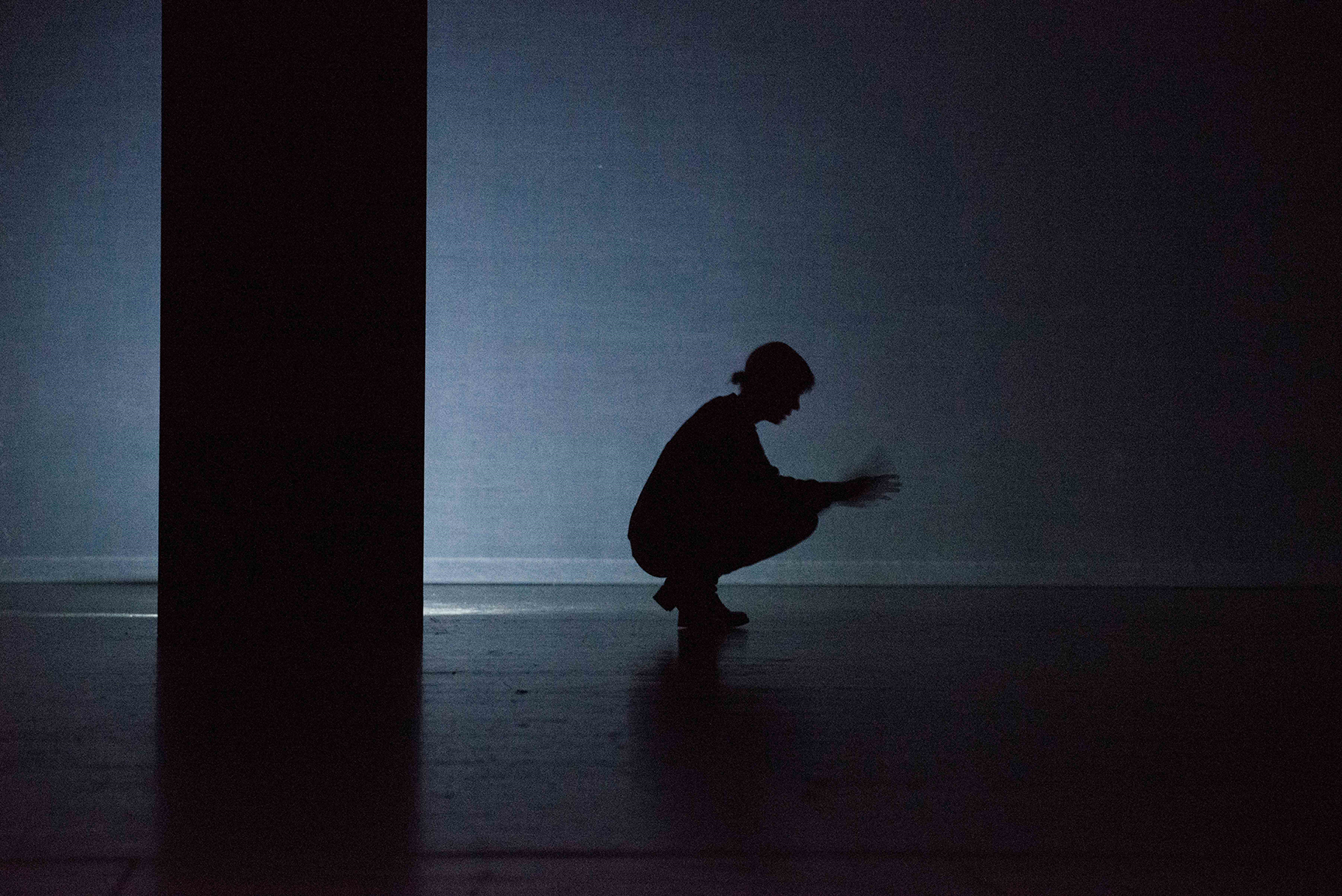
It really did put my everyday problems into perspective. If the fate of all human life, and our planet’s life, is to meet a guaranteed and abrupt end, what does that say about meaning? It’s very likely that our existence is a complete stroke of luck and a just a random chain of events. Could it be that the struggle that defines many of our lives, especially those of artists- finding what we’re good at, finding what we’re meant to do, fulfilment, finding our calling, aligning with our purpose, the pursuit of happiness and divine balance- they all don’t mean anything? We are beating ourselves silly over nothing. The guilt that we now carry with us everyday about climate change and about having destroyed the planet, is not necessary since our planet is destined for ultimate destruction as it is. What we mourn when we mourn climate change is the end of human civilisation, which we have no doubt accelerated. The earth is going to be okay after us, it was okay before us. It will recalibrate. It will reclaim its land, trees will grow over everything, oceans will climb and descend. The earth will be okay for hundreds of years. We got too big for our boots, ruined a good thing but it was inevitable. And the randomness of our existence on earth makes it seem like alien civilisations on other planets are not that crazy of an idea. We are not as special as we think.
I loved the beauty of De Bleser’s words; they added great aesthetic value to an otherwise dry subject. Her discourse was intriguing. Part TED talk part performance poetry. She made science sound fantastical. She broke large concepts down with logic and built them back up with reason, awe and respect for a system that is so much bigger than us. Despite her message of ultimate doom, she was never depressing. Her show was full of wonder at the world and packed with observations of beauty.
The show looked to be appreciated by folks familiar with theatre. It was avant-garde and minimal and loyal to the Belgian school of thought in that respect. I myself would have liked a little more visual engagement and for the dark periods to be significantly shorter. The pillar at the centre of the stage wasn’t explained and wasn’t the prettiest thing to look at. The slideshow at the end brought up even more complex feelings in me. It showed us the message that was released into outer space by the 1960s American government for aliens to find. It was riddled with racist imagery that implied that all great things the human race has accomplished have American or white origins. Where were the pyramids?! But maybe De Bleser was looking to make a point about the absurdity of this and the extremely limited average human perspective. Our desire for immortality when we literally have no understanding of anything is comical. The slideshow was at odds with De Bleser’s carefully researched and rational narrative. She gave me great food for thought. She did test my patience slightly but I see now that it was necessary for me to truly come face to face with nothingness. Incidentally, years ago we had talked to one of the play’s writers, Valentijn Dhaenens. You can check out our interview here.
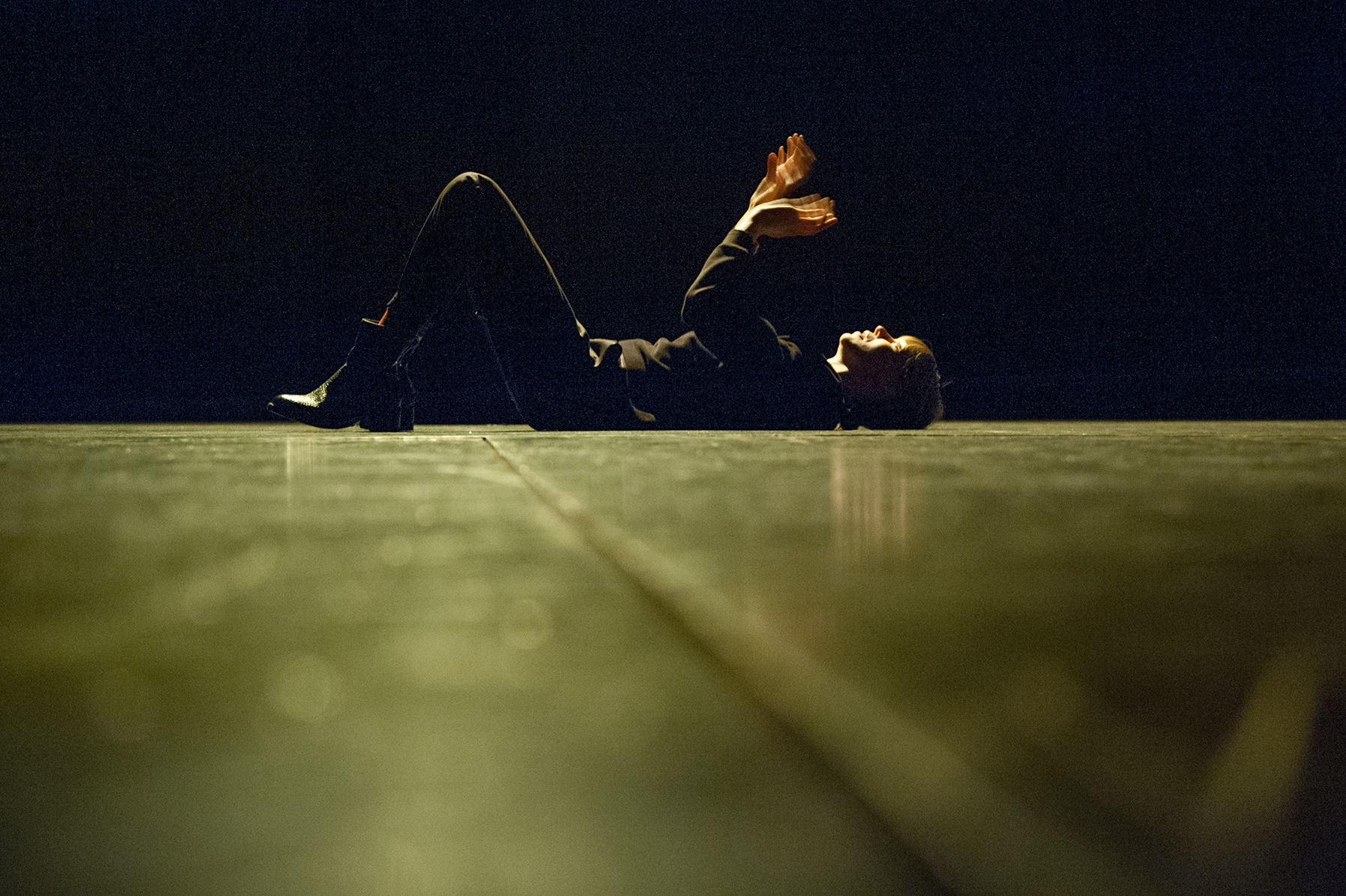
De Bleser’s nihilist perspective when applied to “The Explanation” intensified my reaction to the latter. “The Explanation” tackles our obsession with classification of sexuality. As Kevin MacDonald says in the play, “Who cares?!” and “does matter? Does any of this matter?!” Not in the least if you ask De Bleser. There is no divine purpose to life. No meaning. No right way of doing things, no prize for choosing one way over another. All that’s guaranteed is an end. So is this how we want to spend our precious time, policing what others wear? And getting mad at each other for having different theories on what happens to us when we’re gone?
MacDonald plays John, a straight man. Dick played by Evan Frayne is a straight man as well. John puts on a wig that his ex-girlfriend left behind and feels a rush of excitement. So he does it more, eventually dressing up fully as a woman in public, specifically to the Vancouver Public Library in downtown on Saturday mornings and then for a coffee on Robson afterwards. He tells us his story in a charmingly candid manner, often improvising, which conveys his self-doubts accurately. John is torn between what feels good and what is acceptable. He finds exhilaration via his new secret. He doesn’t pay heed to the cons of this situation at all, like safety or having to rethink his sexuality.
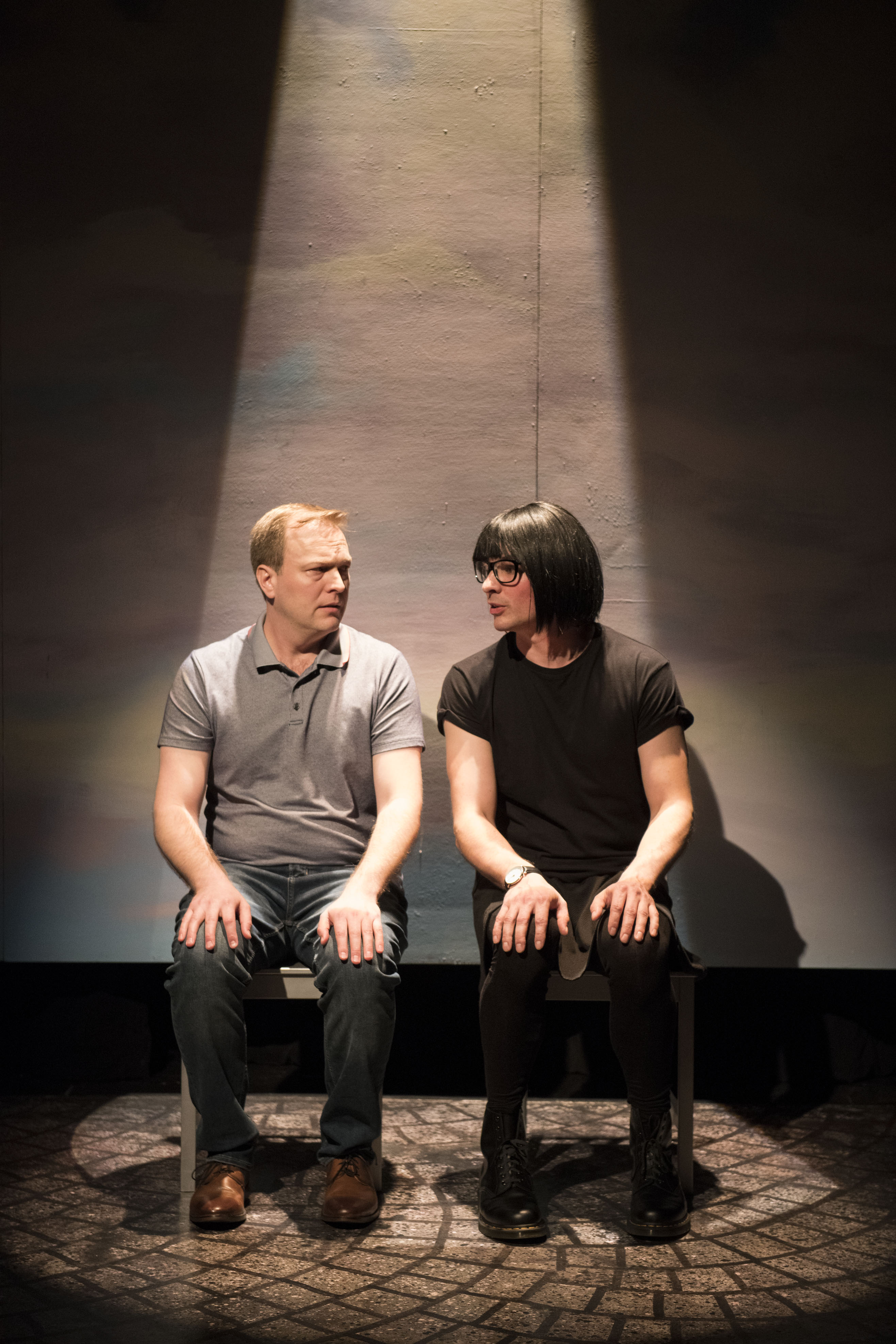
Enter Dick and a chance meeting at the library. Dick is inexplicably drawn to John, romantically or otherwise he doesn’t know. John and Dick’s friendship develops. They start meeting on Saturdays and go dancing later. The dance scenes are super fun and intensely striking as they take over the two men’s intimate monologues. The strobe lights and pulsing pop music make you want to get up and join the talented actors on stage, who mind you, are not bad dancers! Suddenly there is noise and liberation in their world and in their bodies.
John and Dick find in each other confidants and an escape from the rigid routines of their lives. This build-up is played out very delicately and their friendship is sweet and sensitive. We get to see how straight men are emotionally deprived of personal connection and avenues in which they can act on their whims. It was heart-warming to see two straight men do what they feel and not care about how they are perceived.
Although the set and props are minimal in this show, visually it never lost the audience, I would say thanks to the injections of dance music and disco lights. John and Dick’s discourses are very chatty and emotive. Although their friendship takes a complicated turn, for most of the show they are elated. Part of me wished they had just stopped there- two straight men who hang out, crossdress, go dancing every Saturday and then go back to their jobs and lives, and have it be completely normal and accepted. Why do we allow these activities to be only okay for gay men while forcing straight men to bottle all their emotions up only to have them literally blow up in the rest of our faces? Is the only way they can do this is by being gay? Of course, this is one story, like Chimamanda Ngozie Adichie mentioned in a talk that and minorities need to have multiple stories. One story cannot represent us all. John and Dick’s eventual relationship nonetheless is loving and cute, and we were all rooting for them at the end.
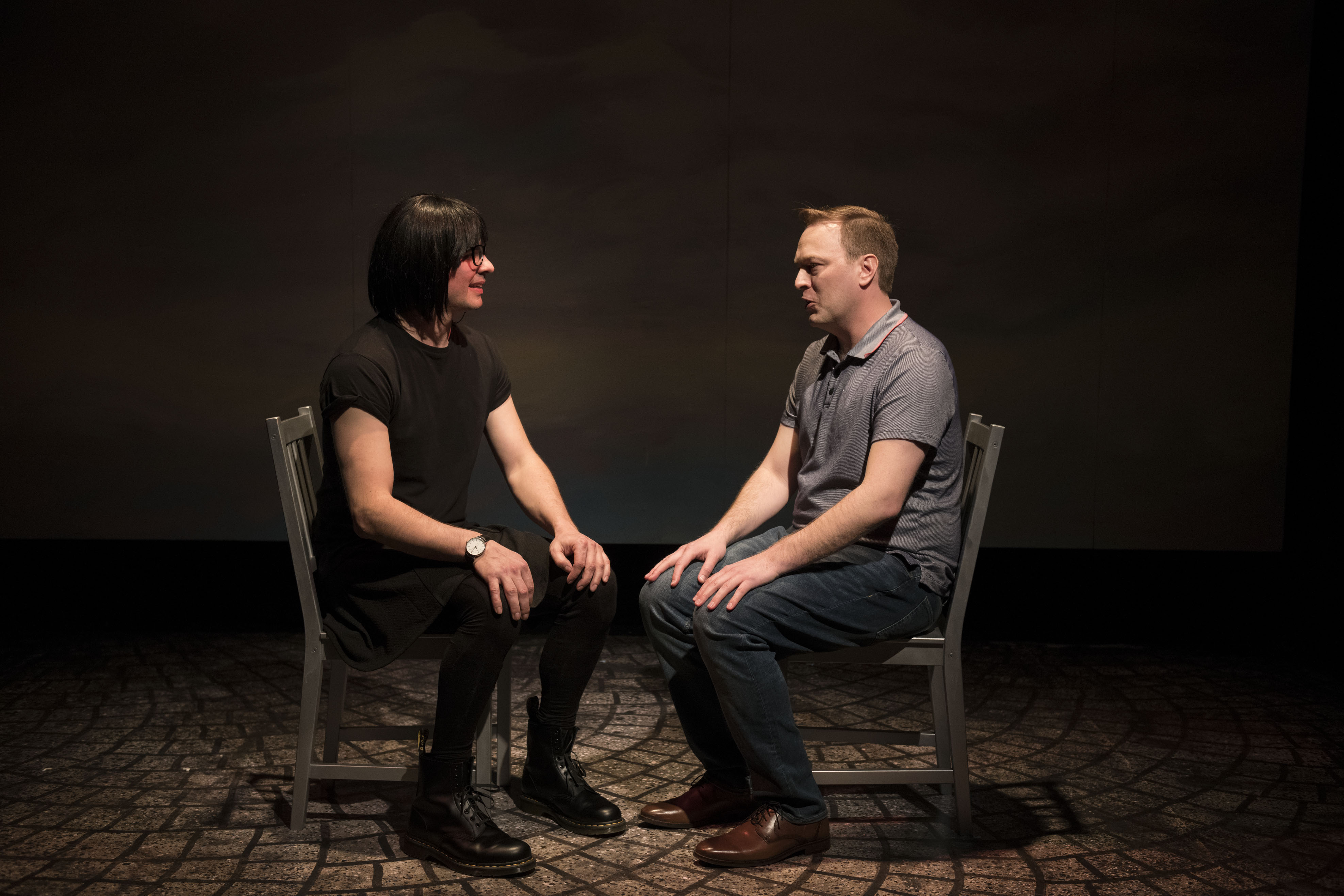
MacDonald and Frayne’s performances were key. They were both vulnerable and genuine and obviously seasoned actors. They stripped down to their souls and were loveable. Another quality of the show I adored was that it was grounded in the locality of Vancouver. The DVD Literature section in the Central Branch? I had no idea it existed and I actually visited it today.
“The Explanation” uncovered the absurdity around our beliefs on gender and sexuality, while “A World Without Us” contextualised this absurdity within the big picture of the life of our planet. Both shows boast of avant-garde, introspective writing, earnest and fresh performances, and concepts of existentialism that are relevant to our current political climate.
We recommend seeing both back to back, otherwise hitting up at least one. If you’re looking for entertainment with a little bit of thinking, “The Explanation” is for you. If you are a theatre pro and want a mind-bending workout for your brain and belief systems, go for “World Without Us”.
Get your tickets here!
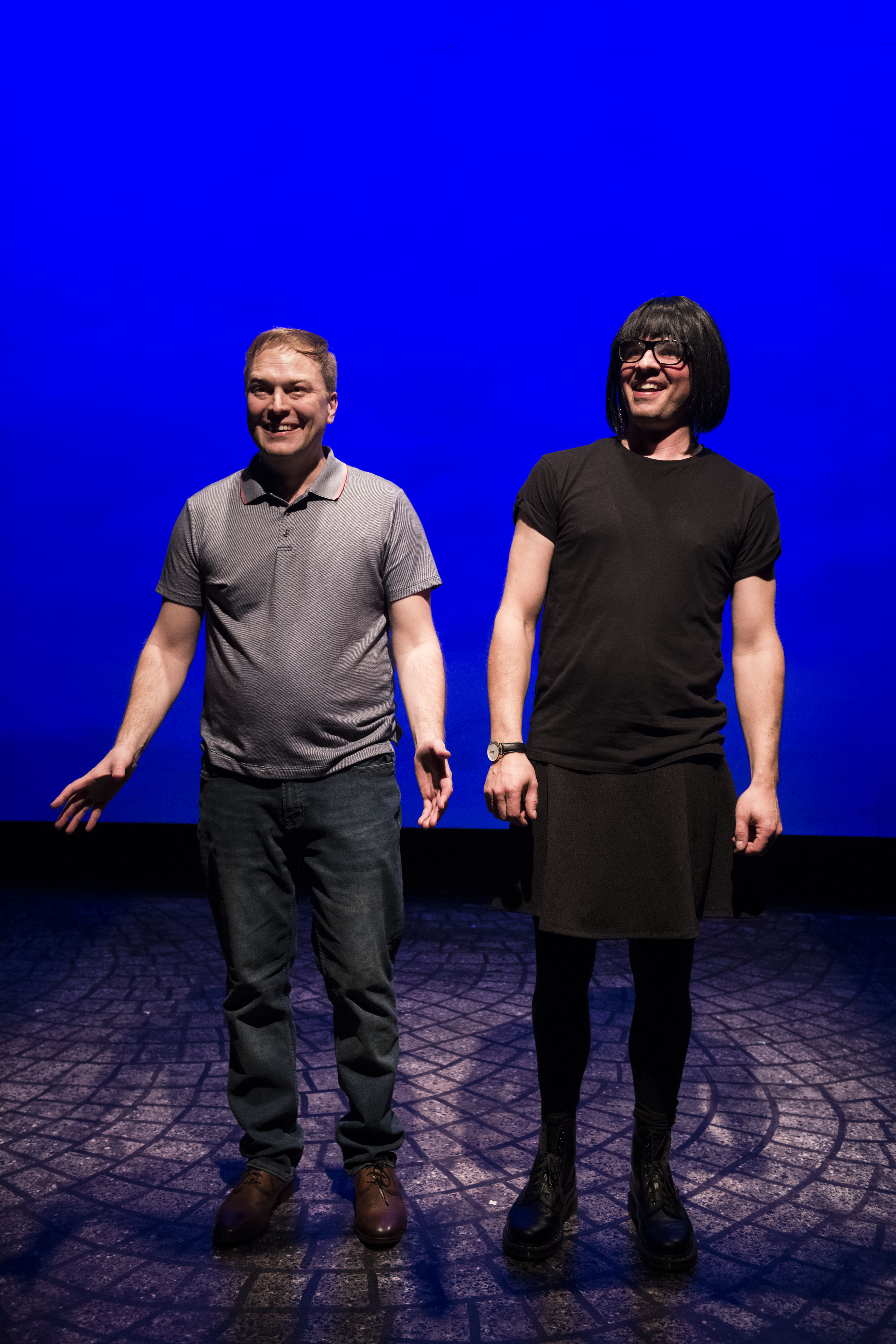
– Prachi Kamble
